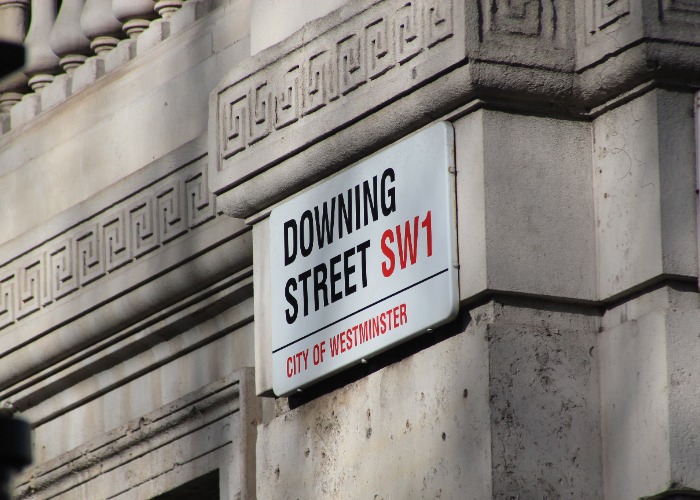General Election 2024: National Insurance, pensions, ISAs, energy bills, IHT and more

With Prime Minister Rishi Sunak calling a surprise General Election on 4 July, Katy Ward delves into what the two main parties have in store for our finances.
Prime Minister Rishi Sunak last week shocked many Brits and indeed members of his own party when he called a snap General Election in just five weeks’ time.
Amid a torrential downpour, with Things Can Only Get Better blaring in the background, the Tory leader declared it was time for the country to choose its future.
But what exactly could that future hold for our finances?
Here, we look at eight ways in which the election outcome could impact the amount you have in your pocket each month.
Opinion: this ‘low tax’ Budget hammers those who are struggling
National Insurance
In a popular, though widely anticipated, announcement in his March Budget speech, Chancellor Jeremy Hunt announced a 2p cut to National Insurance Contributions, which had already fallen by 2p in 2023.
All in all, he claimed that the average worker would save £900 per year under the plans.
And with the election looming, Hunt has also hinted that more cuts could be on the table, saying that his party could go further if it could afford to do so.
In contrast, the chancellor has argued that taxes would likely rise under a Labour government in an attempt to plug what he described as the ‘black hole’ in their economic plans.
Despite this, Shadow Chancellor Rachel Reeves has said her party wouldn’t look to reverse the 2p tax cut if it were to win the election.
The state pension triple lock
Pensions, and the triple lock in particular, will likely be central to all the key parties’ election pledges.
Under the guarantee, state pensions increase every year in line with inflation, average earnings or by 2.5% – whichever is greater.
Although the lock is popular with older Brits, it is typically less of a vote winner with younger generations due to its high cost in taxes.
Both the Conservatives and Labour have already announced plans to retain the lock in their manifestos.
The little-known triple lock loophole
The State Pension age
Although the State Pension age remains a major issue for many voters, experts believe the main parties are likely to keep this out of their manifestos.
While there are currently plans to raise the retirement age to 68 by 2046, there are rumours that an increase could happen far sooner.
As this move would undoubtedly prove unpopular with voters, it’s unlikely that any parties will want to draw attention to it in their election campaigns.
Perks of getting older: help available to the over 60s
Energy bills
Despite an upcoming 7% fall in the energy price cap in July, gas and electricity bills remain painfully high for many Brits, which means this issue will likely form a key part of the election battleground.
If Labour comes to power, it has plans for a publicly owned Great British Clean Energy Company, which the party claims would slash bills and increase energy security.
The opposition party also states that it would extend the current government’s windfall tax on energy profits – increasing it from 35% to 38%.
Energy prices: could we see a return to cheaper tariffs for switchers?
ISAs
All adults currently receive a £20,000 annual allowance to invest in ISAs every tax year, with any interest being tax-free
As part of his Budget speech, the chancellor announced a new ‘British ISA’, which would allow savers to invest a further £5,000 into UK investments.
With a consultation into the British ISA ending on 6 June, however, there wouldn’t be time to implement the policy before the election.
Labour has yet to confirm its plan for the proposed British ISA, although the party has claimed that it would like to ‘simplify’ the framework for savings.
Top tips to become an ISA millionaire
Inheritance Tax
As the election date comes closer, there has been yet more speculation that the Tories could cut Inheritance Tax rates (this was also rumoured before the Budget but did not materalise).
Speaking to The Telegraph in his first interview since the election was called, Jeremey Hunt described IHT as ‘pernicious’ and ‘anti-conservative’, adding that it acts as a disincentive for people to save for the future.
While the chancellor’s comments do suggest that IHT could form part of his party’s manifesto, he declined to elaborate in more detail.
In contrast, Keir Starmer has firmly opposed any further cuts to IHT, with some within his party believing so-called death duties ought to be even more punitive.
Minimum wage
In April, the current Government raised the National Minimum Wage (NMW) levels.
Under the new rules, employees aged 21 and over must receive at least £11.44 per hour, while those between 18 and 20 now qualify for a minimum of £8.60. The rate for apprentices and those under the age of 18 is £6.40.
Although Labour has promised to improve NWM provision, it has not issued any concrete guidance on what the new levels would be.
Trains delays
If it wins the election, Labour has pledged to renationalise almost all passenger rail services within five years.
Under its plans, a new public body would take over existing contracts as soon as they expire.
The party also promises automatic refunds on delayed journeys and improved internet access on trains.
In response, the current transport secretary Mark Harper described Labour’s proposal as ‘unfunded’.
Cheap rail travel: I slashed 60% off the cost of my train tickets
Comments
Be the first to comment
Do you want to comment on this article? You need to be signed in for this feature